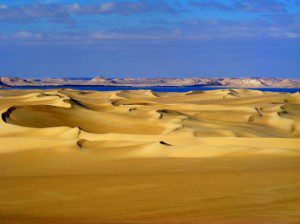This article comes on Day 30 of our special Altmuslim/Patheos Muslim Ramadan #30Days30Writers blog project, in which we are showcasing the voices of 30 Muslim leaders, activists, scholars, writers, youth and more (one on each day of Ramadan) as part of our commitment to own our own narratives and show how we are one Ummah, many voices. To demonstrate how our Ramadan experiences are shared yet unique to each of us. Eid Mubarak, everyone!

By Michael Wolfe
Ramadan is a holiday with commonly held meanings. Everyone who keeps the fast knows them well. It’s a time to fast and subdue the appetite, a time to hand on good fortune, to give thanks for the Quran, gather at mosques for extended prayers, a time for multiplying blessings — all these are agreed-on understandings, experiences everyone who keeps the fast can share.
But Ramadan is also a month of mysterious openings and deep-reaching demands that touch us in as many different ways as there are people. In this sense, on a parallel track with the month-long event Muslims celebrate together, each of us has our own private Ramadan.
This Other Ramadan I’m thinking of is a four-week, silent vigil separate from society and people — maybe even separate from your self. I don’t mean a monkish retreat or a forced disjuncture. Social life goes on, but so does this other, quieter experience. The closest thing to it may be a walk out into the night in the Sahara Desert. Whether you know the Sahara well or have never seen it, most likely at some time in your life you have wakened in the dark while the rest of the world was asleep and lain there and listened. And what you hear at times like this when you set your mind to it, or set your mind aside, what will fill your being and your ears if you wait and let it, is the ring of silence.
You know the phrase, “It has the ring of truth”? That comes close to it. In contrast to a planet drowned in voices, with the Chattering Class of the Internet topping out at high volume in the billions, this other Ramadan takes places in silence, a speechless stillness that bathes you like lapping water, a gentle undercurrent like your pulse. That’s the place I’m thinking of. That’s where the Private Ramadan begins.
Not just out there over dunes stretching away, but above you too in the reaches of space, where stars burn more brightly than at home and the spaces between constellations are not empty blanks but the velvet black of a pin cushion filled with more stars. And beneath you too, because buried under all that sand lie aquifers of water as broad and cold as a Great Lake, lapping at subterranean shores studded with fossils from a long-lost future millions of years old.
And now that we’re here at the heart of the night, in the world’s largest desert, (a place, by the way, that has always been inhabited), we’re also in proximity to Your Private Ramadan — because the necessary corollary of the desert, without which life would not be possible, is the oasis—the unexpected place of respite, the haven in the warm shade out of the blazing sun.
That is the other Ramadan to me: A space redeemed by the chance to thrive in a niche beyond appetite and satisfaction, to stretch one’s limits past the usual opposites of our words, to inhabit a place that is slightly inhuman, the way the desert may be inhuman, or beyond human, and where there is the chance, near the end of the fast, for the forces of creation to lean a little closer down to Earth.
That is the place I like to remember — a place that during Ramadan I’m reminded of again, the way a person who has crossed the great Sahara is reminded of its immensity at times, in far away places over many years, in crowded cities and sprawling suburbs, a place where what matters is not what goes down your throat, but what emerges from your lips in what you speak, if you need to speak, in this immense silence glittering with shared meaning like water running underground, like moonlight drenching sand dunes, like a sky flowing with stars.
And once the fast is over? Well naturally your behavior, your movements, even your sense of time return to normal. Your usual rhythms reclaim you. Day and night right themselves again. Meals grow more routine. The phases of the moon seem less important. But if you’re fortunate, the results of your month-long effort linger after the fast and festival are over. The memory of the oasis doesn’t leave you, because it’s more than memory. It’s a transformation.
You need to take time to notice, but controlling your appetite for four straight weeks has nourished your freedom. Showing your belly who is boss feeds self respect. You’re a less enslaved to the body now, and freer to let the spirit soar. You have gained by giving up, by sharing food and the fruit of your work for the benefit of others. Self-restraint is not denial. It’s a positive action, nourishing your sense of who you are and what you can be for others. The message of Ramadan is in its long-term effects, in the occasional reminder of just how sweet its difficulty was, as you travel back out of the desert through the next 11 months.
Michael Wolfe is an author and a documentary film producer with Unity Productions Foundation. His new film “Enemy of the Third Reich” premieres nationally on PBS September 9th at 8 p.m. His new book, Cut These Words into my Stone (Johns Hopkins University Press) has just been Shortlisted for the PEN Poetry in Translation Prize. After college, Michael lived in Africa for a few years and travelled in the Sahara Desert.











